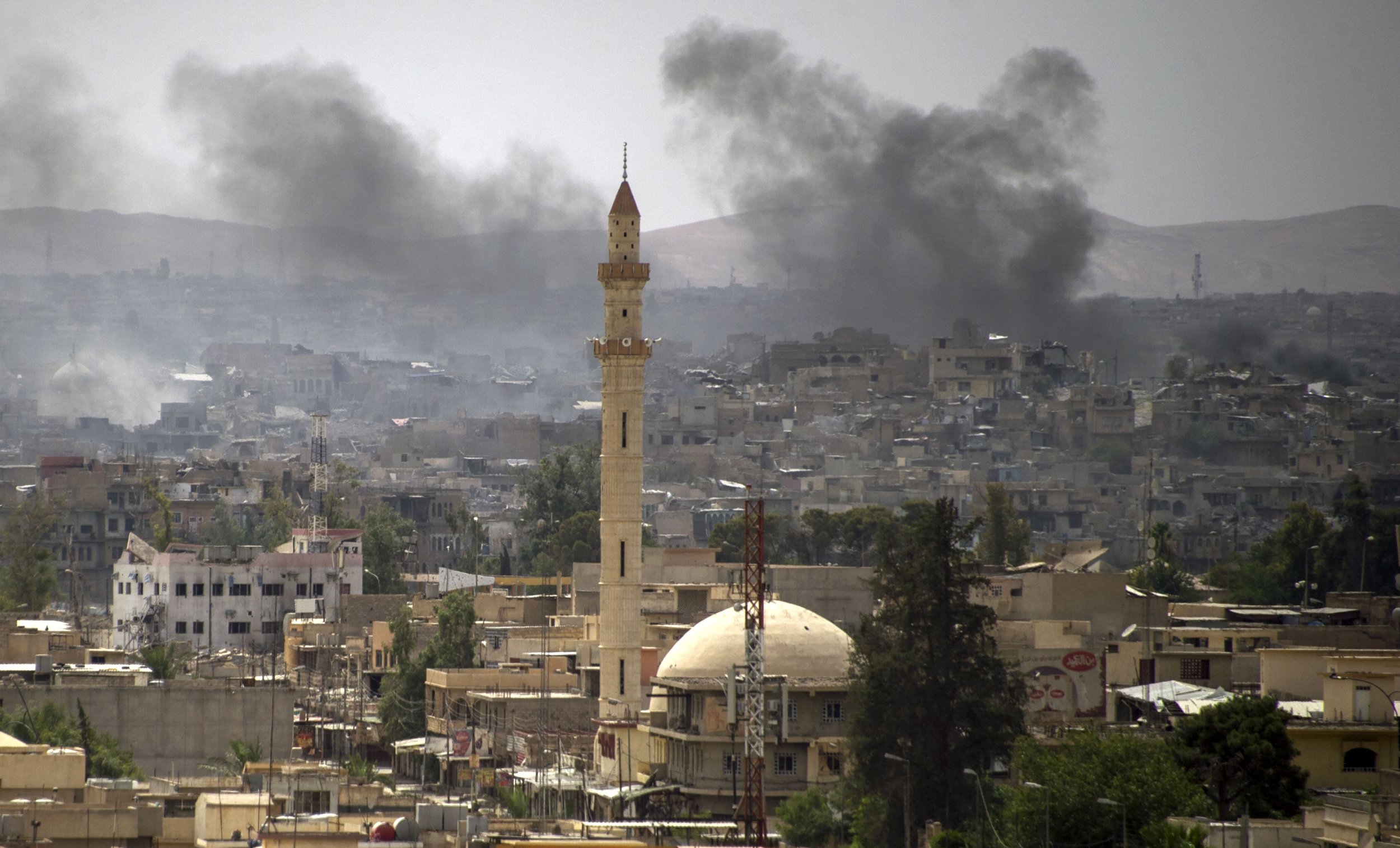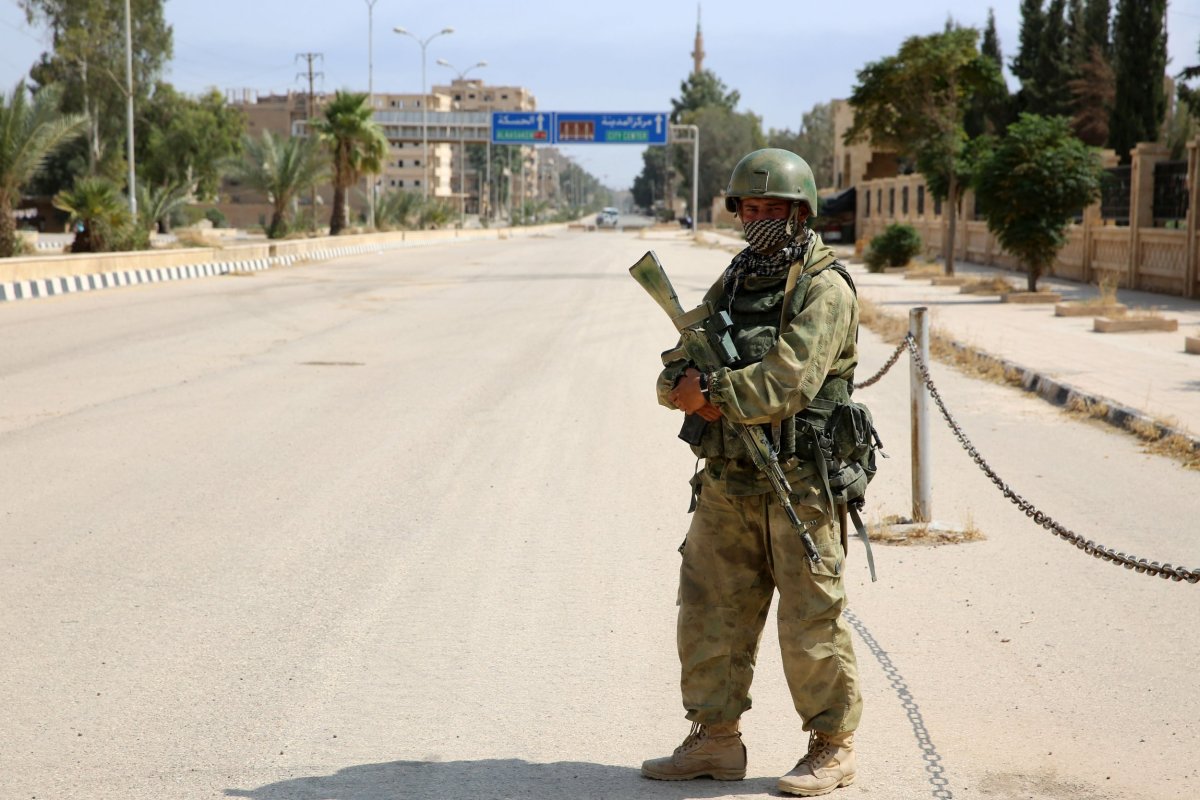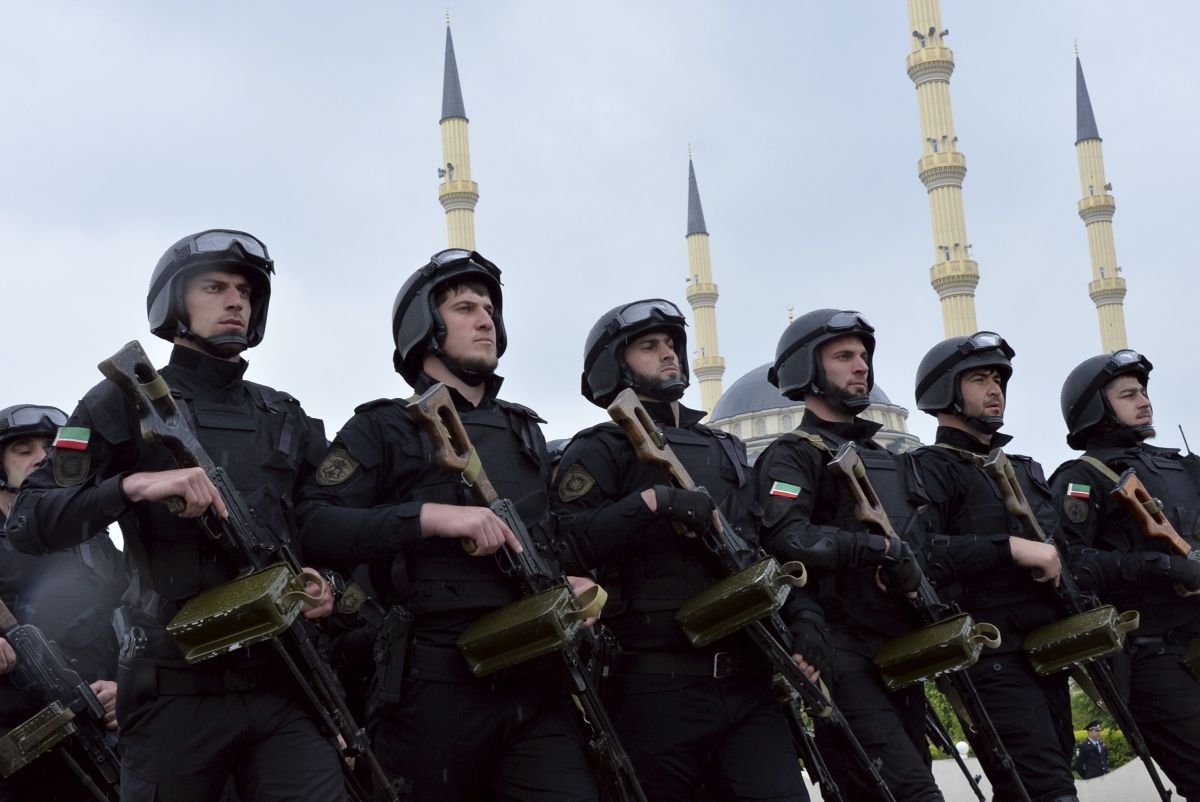
Russia has replaced Tunisia as the top exporter of foreign fighters to the ranks of the Islamic State militant group (ISIS) in Iraq and Syria, according to new figures.
A report from the Soufan Group, a security intelligence consultancy based in Washington, D.C., revises down the count for Tunisian foreign fighters in ISIS's ranks from 6,000 at its last count in 2015 to 2,920.
These new figures show the North African nation has dropped from the largest exporter of ISIS fighters to the fourth-largest. The Tunisian government has officially revised its previous estimate.
According to the data, 3,417 Russian nationals have traveled to fight for ISIS, compared with 2,400 in the 2015 estimate.
The estimate for Saudi Arabia—second on the list—is now 3,244 foreign fighters, an increase compared with the 2015 estimate of 2,500.
Rounding off the top five behind Russia and Saudi Arabia are Jordan (3,000), Tunisia and France (1,910). These estimates are unlikely to increase, the report concludes, because of the heavy military presence in Iraq and Syria at present and increased security around Iraq and Syria.
The number of returners from the top five vary. Russia has seen 400 fighters return, Saudi Arabia 760, Jordan 250, Tunisia 800 and France 271. Britain has seen close to half of its 800 British nationals who have gone to fight for ISIS return home.
Russian security services have long worried about the threat of returning Russian nationals and citizens from former Soviet, Central Asian republics. Many of those Russian nationals who have made the journey have come from Russian republics such as Chechnya and Dagestan.
ISIS has its own affiliate in the Northern Caucasus region, known as the Caucasus Province. The group has killed more than a dozen security forces in Chechnya and other areas of the Caucasus in recent years.
Russian intelligence has also disrupted ISIS-linked plots in both Moscow and St. Petersburg. The Russian air force is conducting an airstrike campaign against the group in Syria, as well as Al-Qaeda's affiliate and moderate rebels, in support of President Bashar al-Assad.

The new report says the total number of foreign fighters for ISIS has in fact increased from its last count in 2015, despite it only accounting for 48 of the countries of the 86 countries previously counted. It notes that states now have a greater handle on how many of its nationals have traveled to Iraq and Syria to fight for the group, and therefore the estimates are more thorough.
Since the end of 2015, countries with high numbers of fighters traveling to join the group, or being used as a gateway country —such as Turkey—made greater efforts to prevent the movement of jihadis to Iraq and Syria. The result was that the "flow of fighters came to a virtual standstill as the Islamic State began to lose its territory in both Syria and Iraq."
Many of those who traveled to Iraq and Syria have either been killed, have surrendered themselves to enemy forces or have returned home. The last category presents a major security challenge for security services across the West.

On Sunday, a British government minister said the only policy that Western government should implement toward foreign ISIS fighters is to kill them.
"They believe in an extremely hateful doctrine which involves killing themselves, killing others and trying to use violence and brutality to create an eighth-century, or seventh-century, state," Rory Stewart, the British government's international development minister, told BBC radio station 5 Live, "so I'm afraid we have to be serious about the fact these people are a serious danger to us, and unfortunately the only way of dealing with them will be, in almost every case, to kill them."
As a result of the increased measures to prevent fighters flocking to Iraq and Syria, jihadis have made moves to find pockets of territory in which they can operate outside of the group's self-styled caliphate. The report cites Libya, Afghanistan and Southeast Asia—where jihadis holed up in the southern Philippine city of Marawi for five months—as a prime example.
"The ISIS presence in Libya has survived its loss of territory on the coast and has drawn recruits from neighboring countries as well as from Libya itself," it reads. "The permeable borders of the region allow fighters to travel home, for example to Sudan, and back again, almost at will."
Uncommon Knowledge
Newsweek is committed to challenging conventional wisdom and finding connections in the search for common ground.
Newsweek is committed to challenging conventional wisdom and finding connections in the search for common ground.
About the writer
Jack is International Security and Terrorism Correspondent for Newsweek.
Email: j.moore@newsweek.com
Encrypted email: jfxm@protonmail.com
Available on Whatsapp, Signal, Wickr, Telegram, Viber.
Twitter: @JFXM
Instagram: Read more
To read how Newsweek uses AI as a newsroom tool, Click here.








